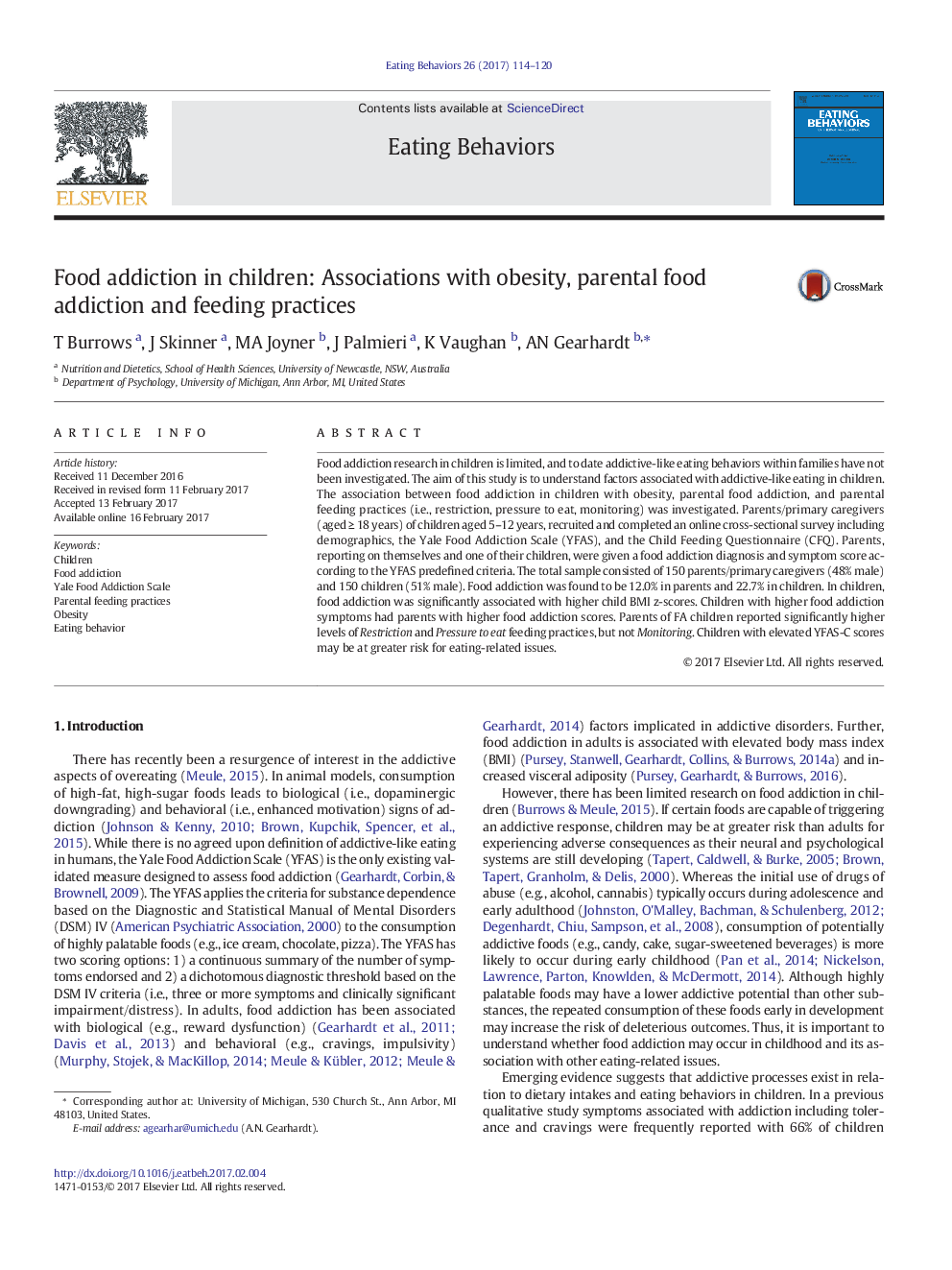ترجمه فارسی عنوان مقاله
اعتیاد به مواد غذایی در کودکان: انجمن هایی با چاقی، اعتیاد به مواد غذایی والدین و شیوه های تغذیه
عنوان انگلیسی
Food addiction in children: Associations with obesity, parental food addiction and feeding practices
| کد مقاله | سال انتشار | تعداد صفحات مقاله انگلیسی |
|---|---|---|
| 136204 | 2017 | 7 صفحه PDF |
منبع

Publisher : Elsevier - Science Direct (الزویر - ساینس دایرکت)
Journal : Eating Behaviors, Volume 26, August 2017, Pages 114-120
ترجمه کلمات کلیدی
فرزندان، وابستگی غذایی، اعتیاد مواد غذایی ییل، شیوه های تغذیه والدین، چاقی، خوردن رفتار،
کلمات کلیدی انگلیسی
Children; Food addiction; Yale Food Addiction Scale; Parental feeding practices; Obesity; Eating behavior;

